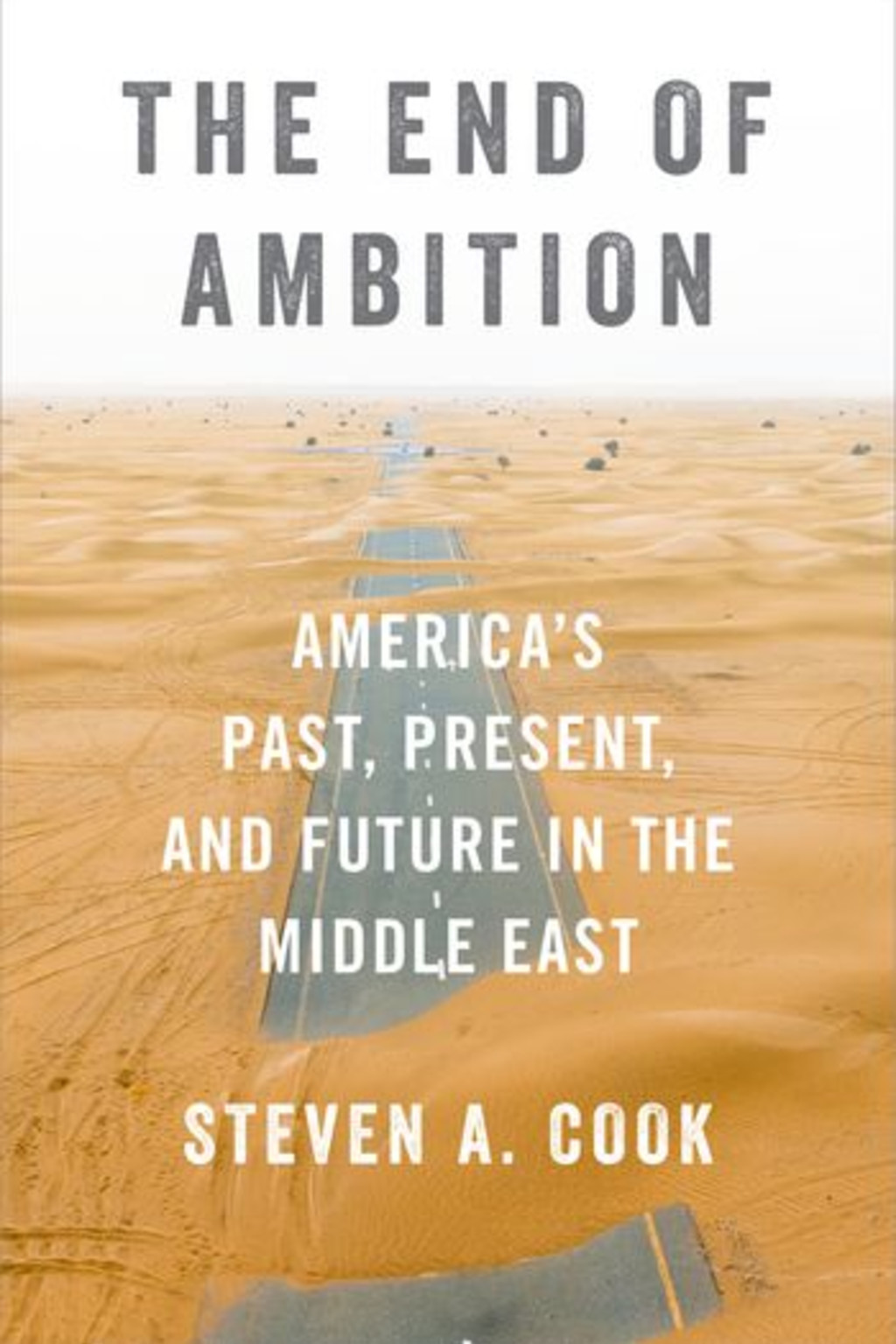The End of Ambition
America’s Past, Present, and Future in the Middle East
A clear-headed vision for the United States’ role in the Middle East that highlights the changing nature of U.S. national interests and the challenges of grand strategizing at a time of profound change in the international order.

- Publisher
- Oxford University Press
- Release Date
- June 2024
- Pages
- 208
- ISBN
- 9780197578575
Following a long series of catastrophic misadventures in the Middle East over the last two decades, the American foreign policy community has tried to understand what went wrong. After weighing the evidence, they have mostly advised a retreat from the region. The basic view is that when the United States tries to advance change in the Middle East, it only makes matters worse.
In The End of Ambition, Steven A. Cook argues that while these analysts are rightly concerned that engagement drains U.S. resources and distorts its domestic politics, the broader impulse to disengage tends to neglect important lessons from the past. Moreover, advocates of pulling back overlook the potential risks of withdrawal. Covering the relationship between the United States and the Middle East since the end of World War II, Cook makes the bold claim that despite setbacks and moral costs, the United States has been overwhelmingly successful in protecting its core national interests in the Middle East. Conversely, overly ambitious policies to remake the region and leverage U.S. power not only ended in failure, but rendered the region unstable in new and largely misunderstood ways.
While making the case that retrenchment is not the answer to America’s problems in the Middle East, The End of Ambition highlights how America’s interests in the region have begun to change and critically examines alternative approaches to U.S.-Middle East policy. Cook highlights the challenges that policymakers and analysts confront in developing a new strategy for the United States in the Middle East against the backdrop of both political uncertainty in the United States and a changing global order.
Reviews and Endorsements
For decades, American interests in the Middle East were defined by preventing the disruption of oil exports, protecting Israel, and containing the Soviet Union. Steven Cook takes the reader beyond the relative successes of that era into more recent cycles of frustration and policy shortcomings....Cook reminds the reader that these states have agency, too. And thousands of years of culture and social organization. In Cook’s view, America’s national interests are better served by a deeper understanding of the region, and by an engaged policy informed by an emphasis on diplomacy, private sector contributions, military partnerships, and realism. Cook’s frank assessment is compelling reading for the classroom, the newsroom, the boardroom, or the Situation Room.
Robert W. Jordan, former U.S. Ambassador to Saudi Arabia, and Diplomat in Residence, Southern Methodist University
Cook masterfully weaves together historical narrative and multidimensional analysis with relevant personal experience to produce an informative, objective, and often critical assessment of U.S. foreign policy towards the Middle East since WWII, with special emphasis on the post–Cold War period. It is accessible to policymakers, students, and the interested public alike, all of whom would be well-served to read this book, especially as the author outlines lessons learned and prescriptions for course correction to what has too often been dysfunctional U.S. policy.
David W. Lesch, Ewing Halsell Distinguished Professor of Middle East History, Trinity University
Steven Cook has written a seminal and very timely examination of the ‘intersection of fantasy and failure’ in American foreign policy toward the Middle East. He warns against the overambition of the post-Cold War and post-9/11 periods when the U.S. sought to remake the Middle East, and the ‘under-ambition’ of the post–Iraq War period when many simply wanted to ‘get out.’ He argues wisely and effectively for a right-sized policy that builds on enduring U.S. interests, understands the region as it is, and appreciates both the capacities and limits of U.S. power.
Paul Salem, President and CEO, Middle East Institute
The End of Ambition is a must-read for anyone who’s still captivated by the idea that America can transform an angry, broken, dysfunctional region in its own image. Cook demonstrates with a terrifying clarity that the Middle East’s reputation for devouring the schemes and dreams of great powers is second to none; and is more often than not a place where grandiose American ideas have gone to die. The answer isn’t withdrawal. America has interests, allies, and partners too important to ignore. Instead, his clarion call is for finding the balance between the way the region really is and the way America wants it to be. Think neither big nor small but smart: identify core U.S. interests and carefully calibrate the means at your disposal to protect and advance them.
Aaron David Miller, Senior Fellow, Carnegie Endowment for International Peace
Following the end of the Cold War, the trajectory of American policy in the Middle East has been steered by a set of bipartisan, hubristic assumptions about American power, culminating with a series of strategic setbacks that have fueled cries for reducing America’s footprint in the region. Prudent, compelling, and sober, Cook has authored an impressive book that skillfully refutes those arguing for the necessity of retrenchment and withdrawal, while also highlighting the shortcomings of successive administrations’ overly ambitious approach to Middle East policy. This captivating work outlines a roadmap for scholars, students, and policymakers seeking to craft American strategy for a region that is vitally important to America’s national security.
Walter Russell Mead, Global View Columnist, Wall Street Journal
In The Press
Courtesy of the Los Angeles Times
Courtesy of Foreign Policy
Reviews
Podcasts
Related Author Publications
Council on Foreign Relations